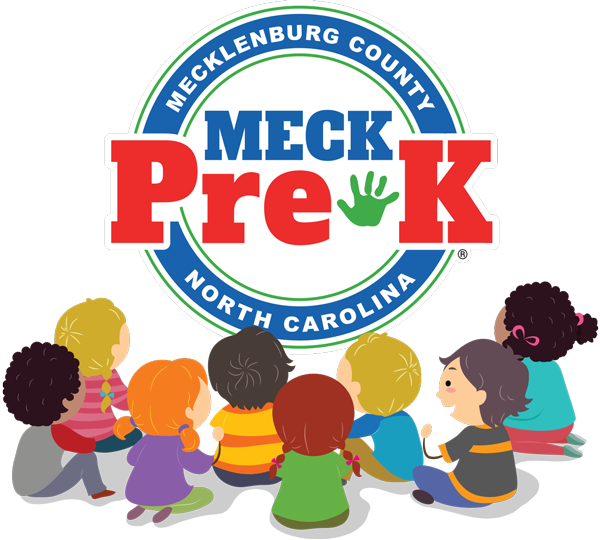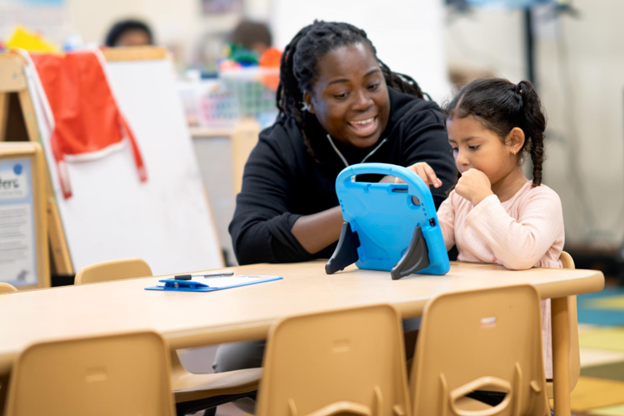Every child deserves a teacher who sees potential, guides growth, and nurtures curiosity day after day. In pre-K, those early years are full of wonder, discovery, and big emotions. Pre-K teachers don’t just teach lessons; they shape how children see themselves, how they connect with others, and how they begin a lifelong love of learning.
Below are key qualities that make a great pre-K teacher — and why they matter.
- Warm, Nurturing Relationships and Trust
At the heart of great teaching is the ability to form caring, responsive relationships with young children. Exceptional pre-K teachers create safe, welcoming spaces where children feel valued and understood.
Research from the International Electronic Journal of Elementary Education (IEJEE) shows that strong teacher–child relationships build trust, encourage exploration, and support healthy social and emotional development. Great teachers also build strong partnerships with families, ensuring that everyone works together to support each child’s growth.
- Deep Understanding of Child Development
Great pre-K teachers understand how children learn and grow — physically, socially, emotionally, and cognitively. They use that knowledge to plan activities that are both challenging and achievable.
According to the IEJEE, the most effective early educators use developmentally appropriate practices and adjust instruction to meet each child’s needs. They observe closely, reflect on progress, and adapt lessons to help every child thrive.
- 3. Patience, Flexibility, and Adaptability
Pre-K days are full of surprises — shifting moods, new interests, and plenty of energy. Outstanding teachers stay calm and flexible, adjusting plans to follow children’s curiosity or handle unexpected challenges.
As noted in the Bluefield University Blog, flexibility is one of the top qualities of early educators. “You may begin your day with a fully formulated plan and then get completely derailed by your students. And it could be a regular occurrence. These youngsters are still growing and developing and sometimes operate on their own schedules. It’s important to be a thoughtful and organized planner, but also be willing to pivot when the circumstances call for it.”
- Strong Communication and Reflection
Great pre-K teachers communicate clearly — with children, families, and colleagues. They use language that supports learning, encourages conversation, and builds confidence. They are also reflective practitioners who ask, “What worked?” “What didn’t?” and “What can I try next time?” This habit of reflection can lead to continuous improvement and more meaningful experiences for children.
- Creativity and a Playful Approach
Play is at the heart of learning in pre-K. Exceptional teachers bring creativity, imagination, and joy to their classrooms. They use songs, stories, movement, and hands-on activities to make every lesson engaging. By turning everyday moments into opportunities for discovery, creative teachers make learning fun — while helping children build problem-solving, language, and social skills.
- Organization and Classroom Management
While pre-K classrooms are playful, they also thrive on structure. Great teachers design environments that balance freedom and routine. They think carefully about transitions, materials, and expectations, helping children know what comes next and how to participate successfully. A well-organized classroom helps children feel safe and ready to learn.
- Empathy and Emotional Intelligence
Pre-K teachers are often the first adults outside the family to help children navigate their feelings. The best teachers model empathy, patience, and kindness. They teach children how to identify emotions, express themselves, and resolve conflicts. The IEJEE finds that teachers with strong emotional intelligence create classrooms where children are more confident and cooperative.
- 8. Professionalism, Passion, and Dedication
Finally, what truly sets great pre-K teachers apart is their passion for helping children learn and grow. They show professionalism, reliability, and integrity every day. They respect each child’s individuality, celebrate diversity, and advocate for every learner’s success. Their enthusiasm inspires children to love learning and believe in themselves.
- Strong Relationships
The Early Educator Support Office at UNC Charlotte says it best: “the key to a successful school year is forming strong, positive relationships” with students, families, and colleagues. Their webpage offers a wealth of resources for teachers and those considering a career in early education.
Why These Qualities Matter
Research confirms that highly qualified, emotionally attuned pre-K teachers play a key role in children’s early success. When teachers bring patience, creativity, and warmth into the classroom, children develop the social, emotional, and cognitive foundations they need for kindergarten and beyond.
At MECK Pre-K, we see these qualities in action every day. Our teachers create joyful, nurturing classrooms where curiosity grows, confidence blossoms, and every child is encouraged to reach their full potential.
About MECK Pre-K
MECK Pre-K is a high-quality pre-K program open to all four-year-old children in Mecklenburg County at no cost to families. Classrooms are located in licensed childcare centers and taught by licensed teachers and highly qualified assistant teachers. You can apply online at MeckPreK.org.
Do you have a child who is not old enough for pre-K this year? Sign up for our email list and be notified when they’re eligible for MECK Pre-K. Simply go to MECKPrek.org/future-meck-pre-k-students and select your child’s age group.

